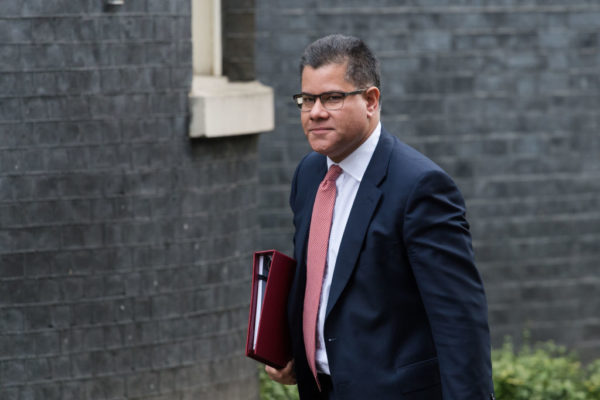UK aid money used for fossil fuel investments
The government’s development finance institution, CDC Group, has active investments in Texas oil firm and Qatari company

UK aid money has been used to invest in oil and gas projects across the developing world, Unearthed has found.
CDC Group, the government’s development finance institution, which invests aid money in businesses in poorer countries, has active investments in 16 oil and gas projects across Africa and one in south-east Asia.
These investments include support for two Texas-based oil companies operating in west Africa, a Qatari oil and gas firm with interests in Africa and a Canadian oil company working in South Africa. Some of the investments benefited firms opening up new oil and gas extraction.
These investments all still sit on the CDC’s books and can be seen on the institution’s website.
A CDC spokesperson told Unearthed that these investments “are historic and do not reflect the group’s current investment priorities.”
Despite this, CDC told Unearthed that it would not be divesting from its fossil fuel investments, as the group argues that doing so would represent poor value for money for the taxpayer.
The news comes with the British government’s record on climate change under increased scrutiny, as the UK prepares to host the delayed UN Climate Conference next Spring.
Unearthed revealed in January that UK Export Finance, a government agency which offers loans and financial guarantees to British companies involved in major projects around the world, was backing fossil fuel projects that will emit greenhouse gases emissions equivalent to 17 coal plants.
CDC’s investments in fossil fuel firms were made via 14 different intermediary investment funds. CDC gives money to these funds on the condition that it is used in a way that meets the group’s standards.
Official figures show that a little over $785m has been invested in funds which then pumped some of this money into oil and gas companies. CDC refused to give a breakdown of how much went to each individual fossil fuel company.
These active investments go as far back as 2007, with the most recent investment, in a company specialising in oil and gas services and transportation, including things like petrol stations, in Uganda, made in March 2018.
Of these 14 investment funds, 13 are domiciled in tax havens, including Luxembourg, Mauritius and the Cayman Islands, with the one non-tax haven based fund headquartered in London.
CDC’s investments include Kosmos Energy, a Texas-based firm which specialises in deepwater oil exploration and production. CDC’s investment supports the company’s work in Ghana, where the company is working in partnership with other firms to explore for oil offshore. CDC’s investment was made in 2014.
The development institution also holds investments in two companies operating in Nigeria: Vertex Energy, a Texas-based company which refines oil to be used by the petrochemical industry, and Lagos-based firm Broron oil and gas which has an office in Houston.
Money is also invested in Africa Oil Corp, a firm based in British Columbia, Canada, which has oil licenses across Africa. CDC’s investment supports the company’s work in South Africa and was first made in 2014.
CDC also has an active investment in Sphere Petroleum QSC, a Qatari company which focuses on oil and gas exploration in west and north Africa and the Middle East. CDC’s investment in Sphere was made in 2007.
Last summer research commissioned by the Catholic development agency Cafod found that the British government has spent £680m of its aid budget on fossil fuel projects since 2010.
Sarah Wykes, lead climate and energy analyst with Cafod, told Unearthed “Given the climate emergency, there is no justification for spending more aid money on burning fossil fuels. UK aid money should not lock poorer countries into polluting energy systems that will become stranded assets.
“For a credible climate change strategy, CDC must align all its financing with keeping below 1.5°C of warming – including its investments through intermediaries, which represents half of its portfolio.”
CDC Group has in the past attracted controversy for its investments. In 2016, the Times published an investigation into the institutions backing for five star hotels and a luxury mall in the developing world.
Responding to that story at the time, a spokesperson for the Department for International Development said the government was in the process of transforming the body to ensure that its investments benefit the world’s poorest.
In response to this story, CDC Group told Unearthed that fossil fuel investments make up a small portion of the institution’s portfolio and that such investments are only made after meeting stringent tests.
A spokesperson added that CDC has ramped its investment in renewable energy since 2016 from 5% of new investments to 25% during the 2017-18 period. The organisation said that during the same period fossil fuels account for 4% of new investments.
The spokesperson said CDC would shortly be “unveiling a new climate change strategy which will detail how as an organisation we are committed to the goals set out by the Paris Agreement, including supporting countries with the investments that are needed to achieve their objectives for net zero emissions economies by 2050.”

